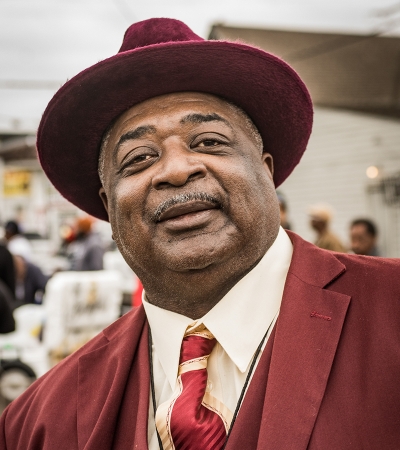Everybody got to carry they own weight in a social and pleasure club. In 1992, Ronald W. Lewis asked me if I would run the Double Nine with him. It was the first time having a parade in the Lower Ninth Ward. I thought about how they kept saying we could never organize nothing down here. That was my driving point—to show Uptown, and all-around town, that it can be done. That I can put it together! I told Ronald, “I can make it work. I know how to deal with people.”
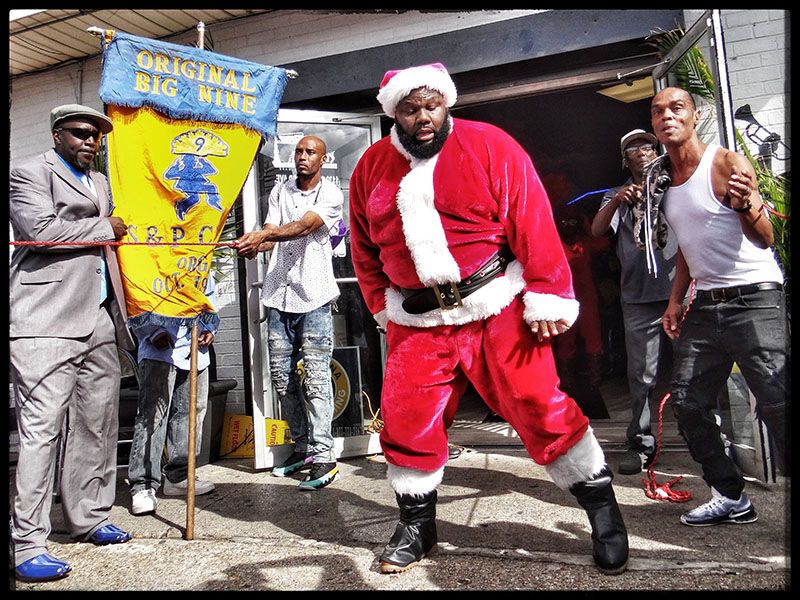
I just come out the Army, and Ronald knew I had that discipline on my side. For the club to maintain a certain standard, you got to put your money up to parade, you got to handle your business. I deal with the city, the state, and the parade route. People talk that talk, but when it's time to put up, they don't have it. I didn't put up with that. Back then, if you couldn't pay $10 in dues? You couldn't sell five raffle tickets? You were out of here. We didn't need you! And that's the way I did it. Ain't no, “My mama ain't got the money” and all that “I ain't workin.” It don't go like that.
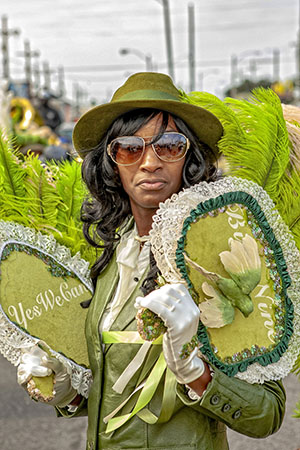
Whatever I said, that was the law. And if you contradicted that law and went to Ronald, he asked you, “What did Bob tell ya?” He already knew—I already told him! Ronald and I had that relationship where we always talked about it. And then when we finalized, that was it; we didn’t need all of them opinions. We had our own opinions. We went and picked out these clothes. Picked the shoes, this the hat. Boom! This is what we’re wearing. All of them opinions set you back. And that’s how we became the force we’ve been known to be.
In 1995, we started Big Nine as an all-men’s club. I run the first division, and Ronald ran the second. Gradually, I brought the ladies back cause I had some little children.
I had about twelve little boys, and all the moms was with me. Next thing I know, the moms want to parade. The next thing you know, they had a little Women Division back there with Ronald. About ten years ago, we brought in the Lower Nine Steppers. They ended up joining so they made it ending up being three divisions! They are their own club, but parade under our umbrella cause they couldn’t get a parade date.
The parade is humongous now. The police love our parade because it’s straight. They don’t worry about all these twisting and turning streets. The truth thing is, we are straight shooters. It’s Christmas time, and everybody’s in that atmosphere.
We have people on floats throwing Christmas toys out for the kids. As long as the community happy, I’m happy. That’s what every club’s trying to do: make their community proud of them. That’s my glory.
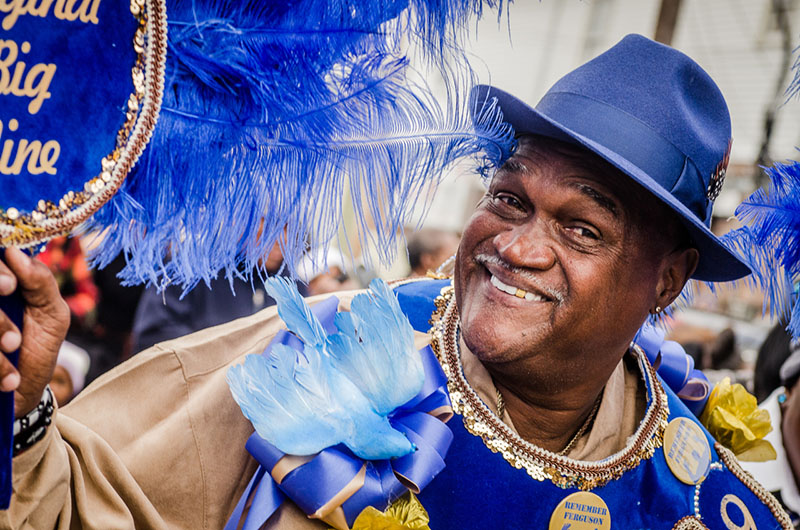
Ninth Ward Indian Coalition
My family moved to the Lower Ninth Ward in 1963. We were living in the Desire Projects at 3714 Benefit Street, and my dad died. I don’t remember his funeral, as I was a little boy. All I can remember my sisters holding my mama by the grave. It was raining, and she like to have slipped in the hole, but they caught her. Besides seeing the pictures, that’s all I remember about the whole experience.
My mom did the food menu for a nursing home—she took care of a lot of people—and bought a duplex at 1811-1813 Egania. We lived on one side, and she rented out the other. It was a close-knit community. You could leave your door open. People next door not going to let you go into nobody else house. And they ain't afraid to tell your child nothing. Everybody basically knows everybody. Just like me, you could ask the little children, “Where Mr. Robert stay at who run the Big Nine?” They’ll bring you straight on to Egania Street. They say, “If he ain't there, you'll find him by Moe's Lounge.”
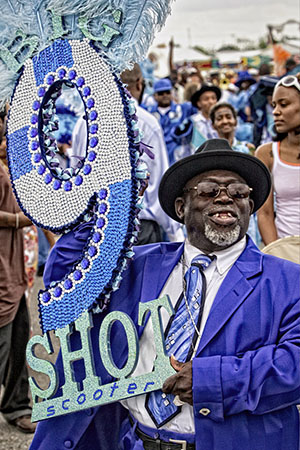
I used to watch the Jolly Bunch and Scene Boosters march, but my main passion was for the White Eagles. Not lying, just going to the Indian practice—hearing the chant, the music—had me all inside. My mom had a car, so I would drive, or hitchhike with someone else to practices in barrooms like the Caledonia in the Sixth Ward. The White Eagles was a mix of neighborhoods—Big Chief Jake Million was from around there, but others were from out the Desire and the Ninth Ward.
Lionel “Bird” Obicheaux beat on buckets, and Big Irvin Spears and I, we used to beat bottles and cans. Before you know it, they had tambourines, but I couldn’t afford no tambourine. Next thing you know, someone gave us drums. That’s how I got familiar with the drummers of Fi Yi Yi and Mohawk Hunters. Once I left the White Eagles, I connected with the Ninth Ward Hunters, and played the drum for Rudy Bougere. I couldn’t sleep until Mardi Gras morning! I would be up there at Johnny, Sally, and Keith “Keitoe” Jones’s house sewing and singing Indian songs with the Ninth Ward Hunters all night long.
I met Ronald at Indian practice at Moe’s Bar. He had helped start the Choctaw Hunters in the Lower Nine with Edgar Jacobs as big chief. They named it after a little street called Choctaw Alley by a little barroom, the Blue Gardenia. I’d see him with Edgar, Ricky Gettridge, and Patricia and Agnes Anderson. That’s how I got there with that Indian Coalition.
Once I got started the Double Nine, and I said, “Okay, I gotta ease my focus off the Indian thing to the second line to get that discipline going with that.” But I’ve stayed connected to the Indians in my community. Chief Rudy’s son, Romeo Bougere, said, “Bob, I’m gonna make you a stick to represent the Big Nine.” Boy, it was like a treasure. I carried it by myself for years. Alphonse “Dowee” Robair, who used to be with the tribe and now is the big chief of Black Hatchet, designs the First Division of Big Nine’s decorations.
At the beginning, Ronald was picking the court, but when he got tired of fooling with it, he came to me. I said, “Well, look, I’m gonna handle this here. I’m gonna tell you who the people are. We’re going to talk about it, and then we are going to select.” For each parade, I pick the king and the queen. I don’t care where you’re from, if I select you, you’re selected. Ain’t about no Ninth Ward. I remind them, “If you want to be queen, ask me; don’t ever wait because someone else might ask first.” Ronald and I decided who was going to be the Big Shot, Grand Marshal, Mr. and Miss Ninth Ward.
The House of Dance & Feathers
My apartment is full of pictures—past, present, future Indians—I got nothing but pictures. People ask me, “Man, how did you save all of that?” When we were told before Katrina, “Get out of the Lower Ninth Ward,” I took all the pictures and brought them to the other side of the bridge. That is how I was able to save pictures from every year we paraded. I got Indian pictures of little children. Their moms and dads didn’t even know I had them until I showed it to them. And they say, “Man, we lost all of that in Katrina,” but I have it.
When Ronald first told me he was going to start a museum in the Lower Ninth Ward, I was able to give him pictures of Joe Pete, Jake Millon, all of the old time Indians from the 1970s. I sent his application to the Secretary of State to get the House of Dance & Feathers registered. The museum had just started—boom—here come Katrina! A lot of people in our club couldn’t make sense of it at first. They thought it was attached to the Big Nine; but it wasn’t. Ronald did this here. The museum was his baby. He created that, and he did this on his own. Sylvester Francis, who started the Backstreet Cultural Museum, taught him how to do it, and Sylvester trained him good. You know, like I said, little steps.
That’s the same thing when they started the Thanksgiving giveaway. It started off with 12 turkeys. I told Ronald, “Bra, do you see what you’re doing there? Next year, it’s gonna be three cases, and then you will have a truck at your house! People are going to donate to them kind of causes.” When you are doing something in the community, it’s gonna grow. At his museum, Ronald didn’t want to be part of grants. He’d take donations, and once he got with the bicycle tours and the guides started visiting the museum, that was it. It was successful.
We paraded after Katrina. Ronald was in Thibodaux, and I was here. We kept communicating. We started uptown and brought it downtown cause a lot of barrooms weren’t back then. We went to K&G in Metairie. We found nice brown and beige outfits. I’m going to say about 50 people paraded that year. Some of them were still living out of town! The volunteers who were helping to rebuild the Lower Nine couldn’t believe how we pulled that off. Everybody loved to cross the bridge going over the Industrial Canal. How you gonna cross that water? And that was my pride, bringing them across that water: Here comes the Ninth Ward!
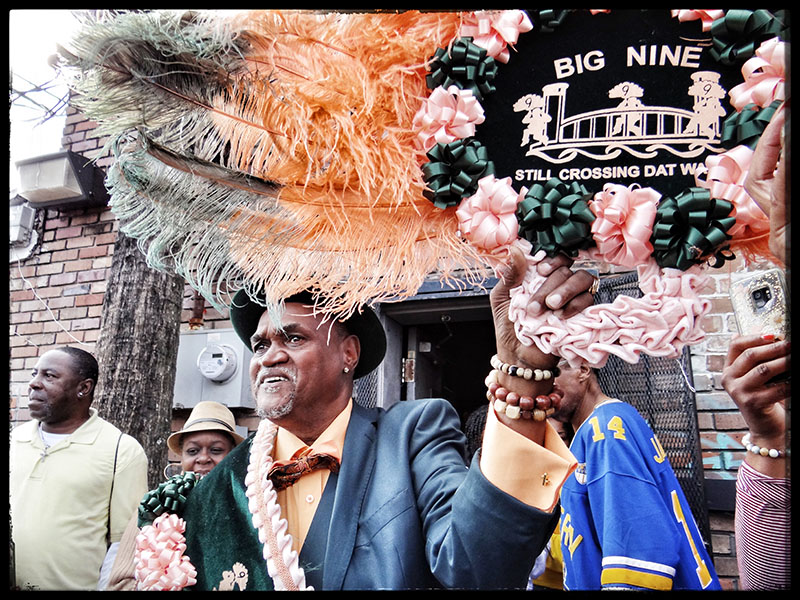
Coronavirus
I’ve been through something since March the 14, 2020. It was that virus in the air. It took me for a loop. I don’t want to see no more hospitals; I don’t even want to touch a door of the hospital! I remember I was dressed up for an appointment. I opened the door, and oh, something just hit me. When it hit me, I shut the door. First, I hit my medical alert button. I talked to Ronald, and said, “I’m going into critical care.” And I was gone. I fell into a coma. I don’t remember nothin. It was like 50 days before I woke up.
At the hospital, I said, “I need to call Ronald.” They told me Ronald passed away from the corona. I laid in the hospital and cried every day. Every time I thought about him, I cried. I couldn’t stop. It took me a long time to get over it. It is just devastating. The people in the hospital thought I was losing my mind somewhat, but I wasn’t. I don’t need no medicine—it wasn’t depression that I had. I had to get them people straight in the hospital: “I just told you how I felt. I didn’t tell you I was in no suicide stage.” I was just hurting on my friend.
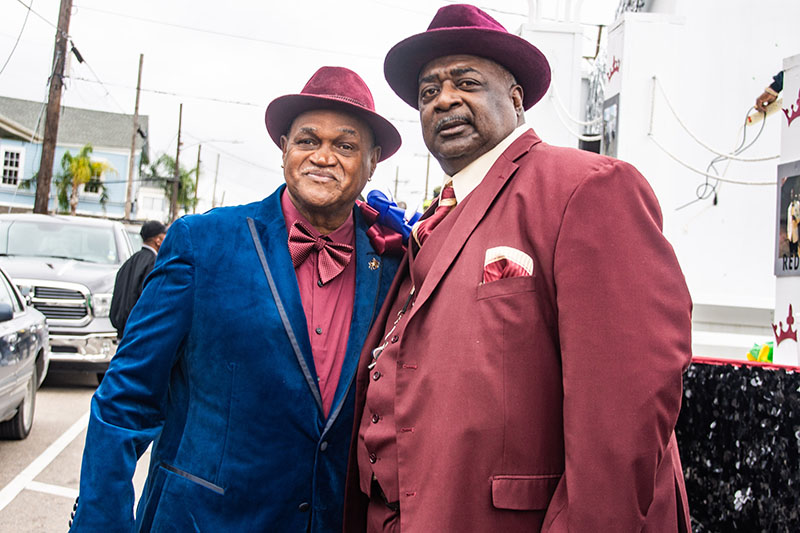
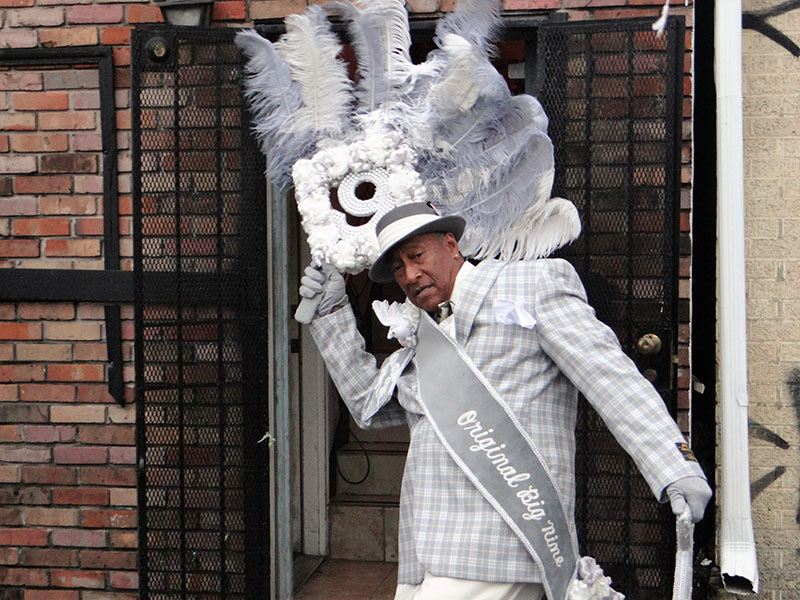
I’ve been through it, man, but my buddy, man, I tell ya. I really was down. I hadn’t been hurt like that since my daddy died. His wife, Charlotte “Minnie” Lewis, and I talk every week. The physical therapists discharged me because cause I was doing so good. I walk by myself, and I’m going to go vote.

